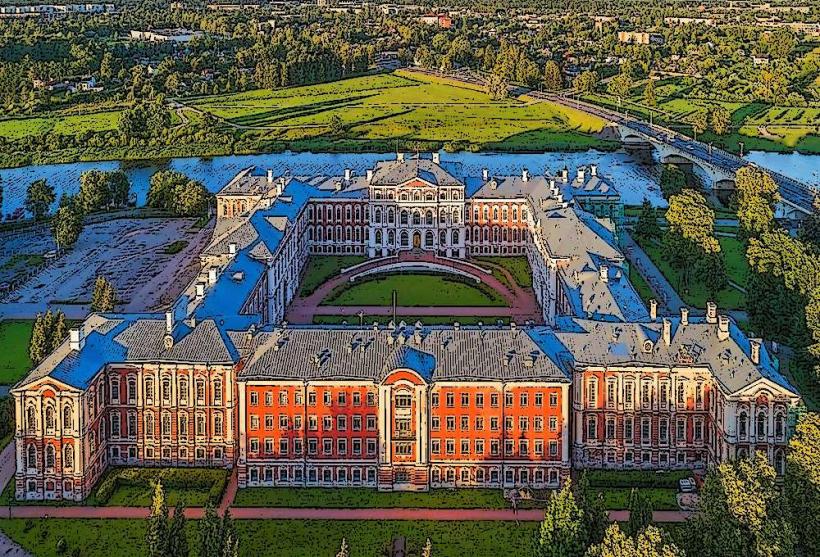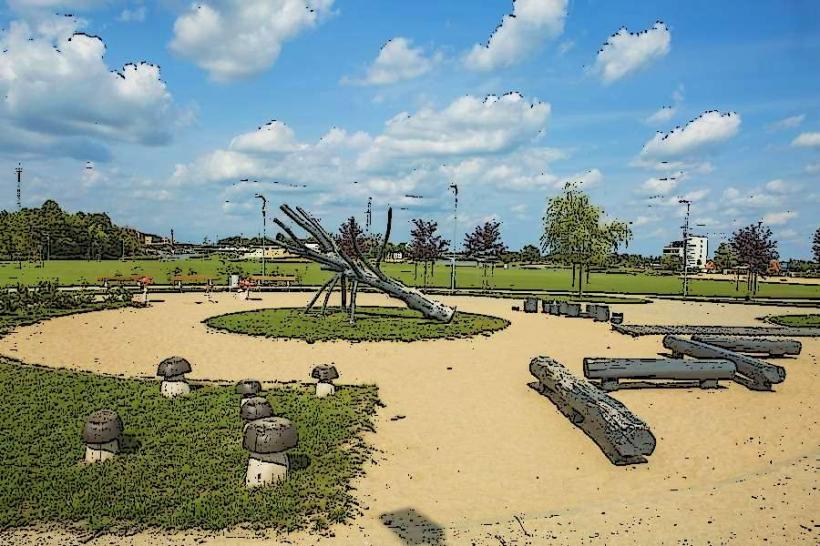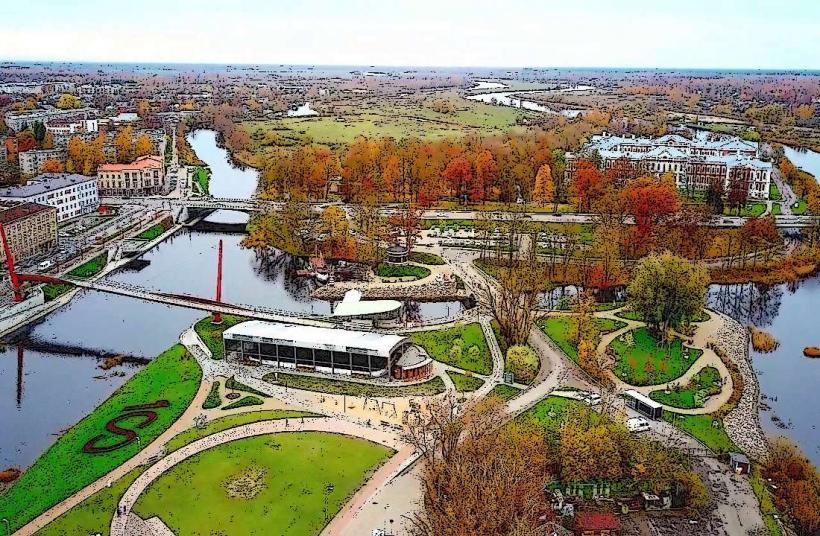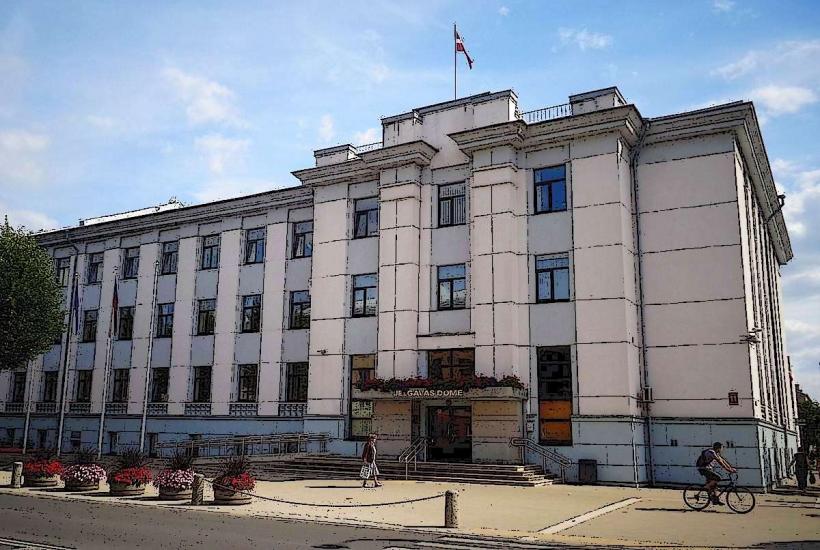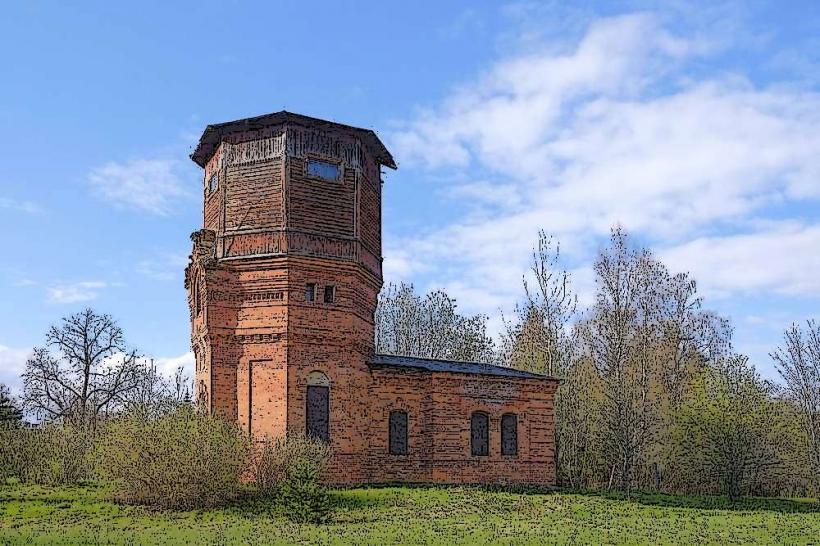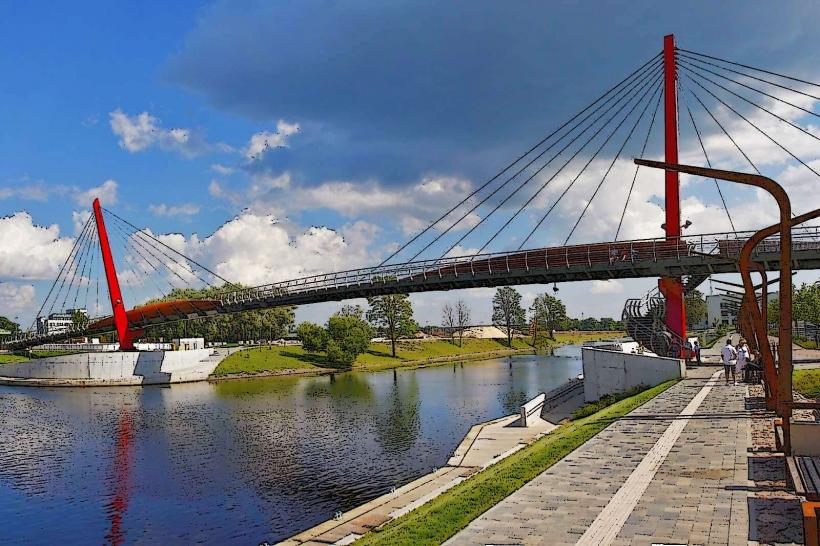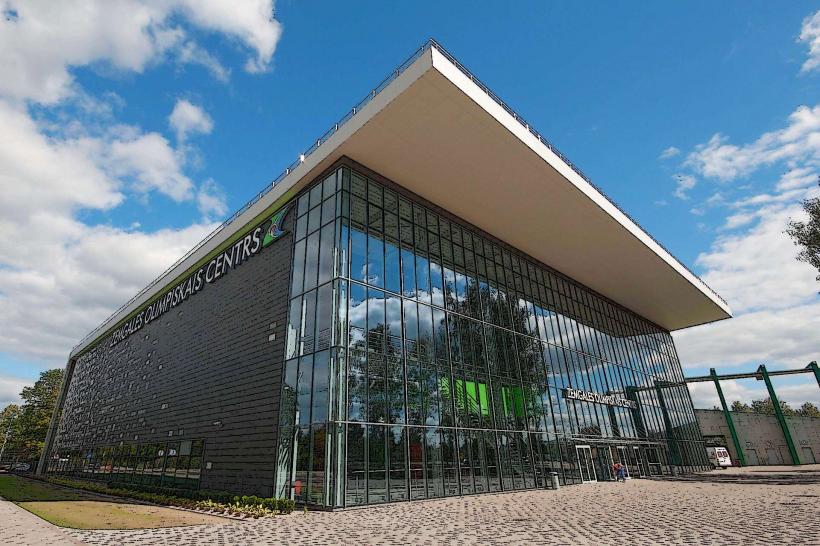Information
Landmark: Jelgava Railway StationCity: Jelgava
Country: Latvia
Continent: Europe
Jelgava Railway Station (Jelgavas dzelzceļa stacija) is a significant transportation hub in the city of Jelgava, Latvia, connecting the city to major rail networks throughout the country and beyond. It plays an important role in the region’s transport infrastructure, facilitating both passenger and freight services. Here is a detailed overview of the station and its importance:
Historical Background
Opening:
- Jelgava Railway Station was first opened in 1868 as part of the railway line linking Riga, the capital of Latvia, to Liepāja. The establishment of the station was part of a broader effort to develop rail infrastructure across Latvia, improving connectivity between its major cities and ports.
Role in Regional Development:
- The railway station was key in promoting the economic and industrial growth of Jelgava, which was then a key center of the Duchy of Courland. The availability of a rail connection helped boost trade, transportation, and the development of surrounding industries, particularly agriculture and manufacturing.
World War II:
- Like many buildings in Jelgava, the railway station sustained damage during World War II. However, it was later rebuilt and modernized to continue serving its vital role in the region’s transport network.
Architectural Features
Design and Structure:
- The station building combines elements of classical and functional architecture, typical of late 19th-century European railway stations. The original structure, though altered over the years, still retains its historical character.
- Main Hall: The station has a spacious interior, with a large waiting area, ticket counters, and access to platforms. The design is functional yet comfortable for passengers.
- Platform Layout: Jelgava Railway Station has several platforms for both regional and long-distance trains, including connections to Riga and other major Latvian cities.
Renovations and Modernization:
- The station has undergone renovations over the years to meet modern standards, with upgraded facilities, including improved ticketing systems, waiting areas, and accessibility features.
Rail Connections
National and International Services:
- Jelgava Railway Station is an important stop on the Latvian railway network, with services linking it to major cities such as Riga, Liepāja, and Ventspils.
- The station is also part of the European rail network, offering connections to neighboring countries like Lithuania and Estonia, making it a key point for cross-border travel.
Freight Transport:
- In addition to passenger services, Jelgava Station handles significant freight traffic, particularly for goods such as agricultural products, industrial materials, and other regional exports. The station is an essential link in Latvia's logistics and transportation network.
Nearby Facilities and Accessibility
- Connection to Public Transport:
- Jelgava Railway Station is well-connected to the rest of the city through local buses, taxis, and pedestrian paths, making it easy for passengers to access other parts of Jelgava and the surrounding region.
- Proximity to Landmarks:
- The station is conveniently located near major landmarks in Jelgava, such as Jelgava Palace, Jelgava Park, and the city center. It is also a short distance from Jelgava Market Square, making it easy for travelers to explore the city upon arrival.
Cultural and Economic Importance
- Transport Hub:
- Jelgava Railway Station is crucial for the local economy, facilitating the movement of both people and goods. Its strategic location allows Jelgava to serve as a gateway between Riga and other regional cities.
- Historical Significance:
- The station’s long history reflects the development of Latvia’s rail system and Jelgava’s transformation from a small town to an important regional center.
Visiting Jelgava Railway Station
- Location:
- Jelgava Railway Station is located at Dzelzceļa iela 1, Jelgava, Latvia, close to the city center and easily accessible by foot or public transport.
- Facilities:
- The station offers a range of services for travelers, including ticket counters, waiting areas, and restrooms. It also features a small café for refreshments.
- Opening Hours:
- The station operates throughout the day, with trains running on various schedules depending on the route. Passengers are advised to check the timetable for specific departure and arrival times.
Conclusion
Jelgava Railway Station is a vital transport hub in Latvia’s southern region. Its rich history, architectural character, and essential connections to both national and international rail networks make it a key part of Jelgava’s infrastructure. Whether traveling for business, leisure, or cultural exploration, the station serves as a gateway to Jelgava and beyond.

